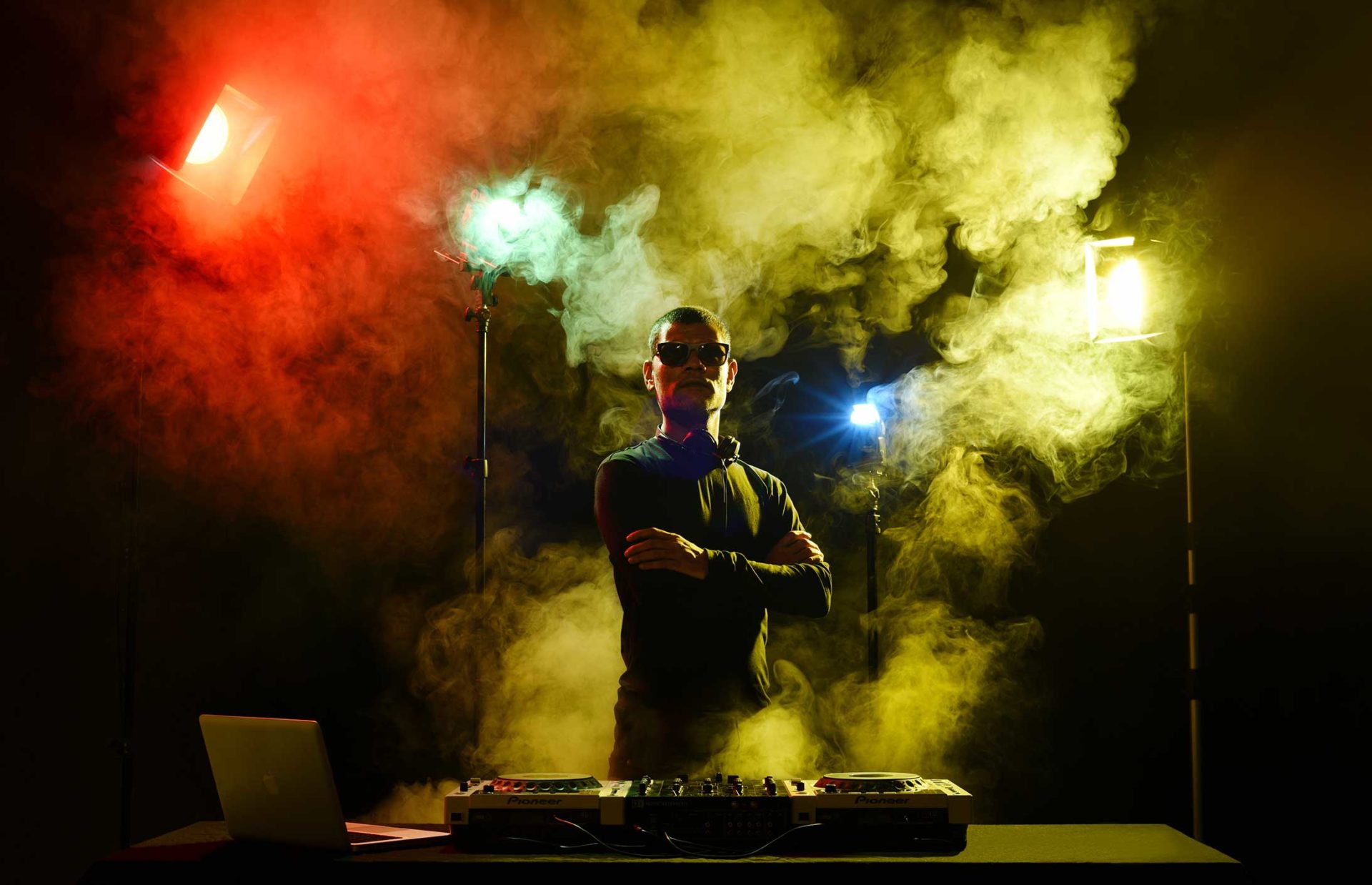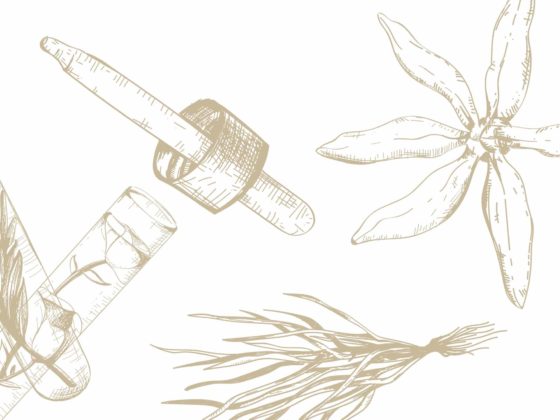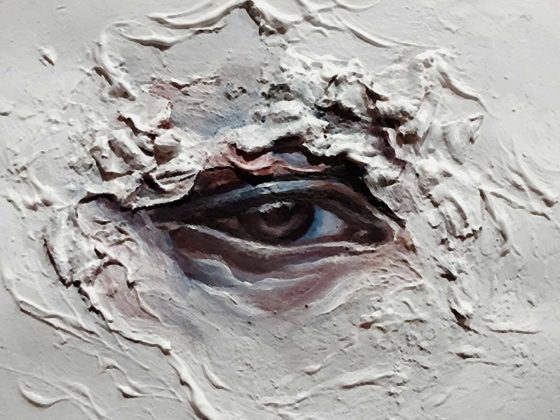As a self-taught DJ who has been performing regularly for the past eleven years, Pai-dé story is definitely an awe-inspiring one. His proficiency and expertise in music has made him one of the most sought-after DJ’s the country has seen. Pai-dé first stepped into the music industry as a musician, performing with local bands including the then famous “Mezzo”. His proficiency in music composition is unquestioned, after all, he is skilled in playing the guitar, ‘bansuri’ the Indian bamboo flute, percussion, brass and acoustic instruments. His recently debuted electronic music album “IRIS the Goddess of Rainbows”, was released after a tough three-year grind of seeking inspiration from India to exploring the beats and vibrations of different music.
Now, let’s get more insight into his amazing journey!
Q. How did you get inspired while you were creating your album?
DJ Pai-dé: I always dreamt of producing my own album. Out of the different styles, I loved tech-house, deep house, minimal tech and trance, the most. I kept on listening to these styles and tried to build several ideas around it. After a while I traveled to Goa, to get a glimpse of it all. I experienced how DJ’s played their own styles of music while grabbing the attention of the crowd and turning them entirely towards that specific genre. It was very fascinating to see how they interacted with the crowd and blended their unique style in to what they played. This technique has greatly influenced the work that went into my album and the way I perform. I was clearly inspired throughout my journey at Goa.
Q. How do you balance playing your own music and the music that the crowd demands?
DJ Pai-dé: As I said earlier, it was more about understanding the audience. The more time spent doing so, the more I understand how the crowd moves to certain tempos and beats. And then I play depending on their preference but adding my own unique style into it. Although, playing at resorts is very different to a DJ playing at discotheques or shows. The audience at resorts are travelers who often visit only to relax, so we are asked to play a certain genre. Which is why we don’t get to try the music styles we wish to offer – I rarely get to play tech and trance. But depending on the crowd I try to blend it in during sessions. Usually it results positively. But at the same time I have to be very careful, because if I make a wrong move I may lose the entire crowd.
When I started around twelve years ago, it was all done manually on a DJ console and had limited access to internet and there were no learning platforms.
Q. The traditional way of DJ-ing is very different to how it is done now. What is your opinion on that?
DJ Pai-dé: My late uncle was a DJ – he was quite famous back in the day, and was a talented musician who inspired me to become one. When he performed, he would play from music cassettes. Back then it was all done manually on a cassette recorder. He used to poke a pencil inside the cassette to listen and figure out the starting point. But today, with the advancement in technology, everything is just one click away.
My late uncle was a DJ – he was quite famous back in the day, and was a talented musician who inspired me to become one.
When I started around twelve years ago, it was all done manually on a DJ console and had limited access to internet and there were no learning platforms. But now technology has evolved in many ways making it simpler and convenient. Today, we are able to create music, record them and make our own playlists from our mobile phones. Even the software’s and equipment’s have vastly advanced. All of this has helped me immensely in learning new things and improving my knowledge. It’s a learning curve for me. I might wake up tomorrow to find out that my audio software has a new plug. It is an ongoing progress. But I try to keep myself updated with every new release relating to my area.
Q. Since you are a DJ, it is expected to play crowd-pleasing songs. But, if you had complete freedom to play whichever song you want to, what would be your top five?
DJ Pai-dé: I would play my own music that I am very proud of! I am actually ready to even take the risk and see how it goes. I would love to see how people react to it and would be heartening to see my music being appreciated. The top five tracks I would play would be from my album, which are all composed by myself.
- Gaia (from my album, IRIS the Goddess of Rainbow)
- Ate’ (from my album, IRIS the Goddess of Rainbow)
- Achelois (from my album, IRIS the Goddess of Rainbow)
- Nyx (from my album, IRIS the Goddess of Rainbow)
- Iris (from my album, IRIS the Goddess of Rainbow)
Q. What is the one track that got really popular but you just can’t stand it?
DJ Pai-dé: “Gangnam Style”, because I dislike the reason why it got popular in the first place. It was the dance moves that were the main highlight. I feel that the dance moves should be recognized after acknowledging the music and it should always come along as a part of the music or song. Maybe I’m wrong but that’s how I see it. I’m not discouraging dancing, but as a musician, a producer and as a DJ, I think that is how it works and that is how I would want people to appreciate my creations.
Q. As a DJ, what challenges do you face?
DJ Pai-dé: It is a very limited market here in the Maldives. Local musicians, especially bands and DJ’s have to completely depend on the tourism sector for a living. And to top it off, sealing a contract with a resort is very challenging. But despite the difficulties, I do feel very happy that the young generation is creating their own music and contributing to the industry. But at the same time I have to compete with them in order to sustain myself – and I take this as a positive challenge. However, the major issue that has been going on for so long is that resorts are hiring foreign DJ’s and musicians as in-house staff. Resorts do it for their own good reasons such as to minimize costs and for convenience which is understandable. But this limits opportunities for us. And in the Maldives, there are no such laws in favor of local artists. I hope that changes in a near future, to help local musicians overcome this issue. And while many resorts work this way, there are some that work in favor of local artists. One such example is, Kurumba Maldives. They do numerous works to promote local artists and provide them with opportunities. I have been working for them for the past ten years, which I am very thankful for.
Like I always say, if you want to do something you must first learn it. You must spend enough time experimenting. And to achieve your goal, you must work very hard and have patience.
Q. What would be your advice to someone who wants to become a DJ?
DJ Pai-dé: Like I always say, if you want to do something you must first learn it. You must spend enough time experimenting. And to achieve your goal, you must work very hard and have patience. You must learn continuously and should never stop even after you reach your goal. Music and technology keeps evolving, therefore you should continue learning. But it is also crucial that you are passionate about what you are working for. If you are passionate, the journey would be beautiful. Internet has now allowed us to learn online, provided access to tutorials and share knowledge. Such platforms have helped me in many ways and I still continue learning. From my experience I can say that, if you keep working hard, opportunities will come your way.
Q. What is your opinion on the current music scene in the Maldives?
DJ Pai-dé: Slow but it is getting better. Compared to earlier days, Internet has allowed us to share our music on online platforms and provide access to many. New platforms are recently being introduced. Maldivian Idol was one such show that has given a boost to young musicians. The show has provided opportunities for artists to perform their talents and showcase it to the general public. The show has also helped it’s participants to build discipline and improve their skills. At the same time, local artists are working hard to create their own music. Likewise, recently the very famous and talented Affan, released a master piece of his own.
Since our music industry is very different from others, artists do not focus on making money out of their albums, rather they do it out of passion. Few months back, with the introduction of “Lavafoshi”, local artists are now able to portray their work to a wider audience via a single platform. “Lavafoshi” also offers the artist a royalty fee, which is something we have never imagined, would happen in the Maldives. Local artists including myself are very happy with what Lavafoshi is offering. Their respect for original local music is the greatest thing so far. Their contribution to the local music industry is huge.
But despite the difficulties, I do feel very happy that the young generation is creating their own music and contributing to the industry.
Q. Do you have any future plans? What is your next step?
DJ Pai-dé: My next goal is to release a unique album from my new band Cosmic Rain; which I am managing and perform as a keyboardist. The idea behind Cosmic Rain is to play our own deep house music. We hope to make our mark locally and also play abroad on a good platform. Currently, we are working hard to take Cosmic Rain to that level. We hope to present our music in a unique form with synchronized lighting’s and visuals. And, present something that the audience would love to listen and watch.
Q. Is there anything else you would like to add?
DJ Pai-dé: I’m very thankful for this opportunity and thankful to everyone who helped me throughout my journey. I am very grateful to have reached this point. I believe that the local music industry is so fragile that we require more local artists who are genuinely passionate. We must all work very hard to make it better. If we all work together to change the existing drawbacks, we can all enjoy a brighter future.





